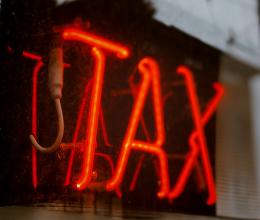Income Tax
As predicted yesterday, it felt like there was an inevitability that more income tax would need collecting, and that the burden would have to be directed at higher earners. So the reduction of the threshold above which 45% tax is paid to £125,140 wasn’t an enormous surprise.
If anyone’s wondering where that number comes from, its 40% up to £100,000, 60% on the next £25,140 (as the personal allowance is withdrawn at £1 for every £2 earned in excess of £100,000) and straight into the 45% band once the personal allowance is fully lost.
Owner managers with profits and incomes in the right place might be well advised to ensure a £150,000 earning in the current year before the rates come into force. And I’m sure that suits the Chancellor just fine as tax accelerated, even at a slightly lower rate, is a win when it comes to measuring Government finances.
Capital Gains Tax
In a similar vein, the halving and then halving again of the annual exempt amount for CGT seems likely to prompt a flurry of pre tax year end transactions.
It wasn’t a surprise to see CGT being targeted although a slashing of allowances was less anticipated than an increasing of rates.
As a tax collection measure it seems like quite a long game to be playing. An overwhelming majority of all capital gains are realised at or around the level of the exempt amount and it is to be expected that taxpayers will adopt a policy of crystallising smaller gains on their portfolios from year to year.
As such, a larger pregnant gain builds up and will become taxable at some future point, but the immediacy of collection appears lacking.
Frozen allowances
Tax by stealth continued, with a number of allowances frozen for a further period such that inflation increases the tax take without a cutting of relief or increasing of a rate being necessary.
I found this another slightly curious one, perhaps designed to engender market confidence and long-termism rather than to actually raise any money.
Reason being that income tax allowances and thresholds, inheritance tax thresholds and NI thresholds were all already frozen to 2026. VAT registration and de-registration thresholds already frozen to 2024. Adding a couple of years to the freezes takes them all well beyond the next general election and so there must be little to no confidence that the policy will reach its end date before a new chancellor decides to make changes.
Notwithstanding that point, as inflation runs riot I find myself wondering who will pay more of an increase in the next few years. Those dragged into the 45% band by the threshold reduction (5% increase in rate) or those dragged into higher rate tax by several years of frozen thresholds (20% increase in rate of tax).
I suspect it will be the second group, and that the Chancellor will have achieved a popular ‘tax the rich’ announcement to please the newspapers whilst managing to get the ‘man in the street’ to pick up most of the tab.
Road tax on electric cars
Finally, the announcement that electric cars will cease to be road tax exempt from 2025 signals the beginning of the end for the incredibly generous tax perks available in respect of zero emission vehicles. We all knew that had to happen, and it feels like there are a good few years left during which electric car drivers will enjoy significant tax perks. But the honeymoon has to end some time.
Our full summary of today’s announcement will be live on our site tomorrow but, if you would like to receive a copy direct to your inbox, please subscribe to our Budget summary mailings here.




